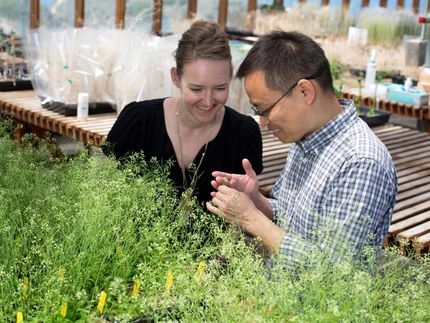OncoMethylome presents promising results of a blood-based methylation assay for the detection of colorectal cancer
OncoMethylome Sciences announced promising results from its on-going evaluation of a blood-based methylation assay for the screening and detection of colorectal cancer (CRC). The results are being presented at the 15th Congress of the European Cancer Organization and 34th Congress of the European Society for Medical oncology in Berlin, Germany.
Data on the method of methylation marker selection, the analytical performance of the test and the first results from a multi-center feasibility study is being presented. The ultimate goal of the program is to provide a sensitive, specific and patient-friendly option for colorectal cancer screening.
"We optimised the methods of DNA extraction and methylation detection so that we could detect low levels of methylated genes in blood samples of people with colorectal cancer," says Dr. Louwagie, OncoMethylome's VP of Product Development, "and we were able to find a high frequency of two newly reported methylation genes, SYNE1 and FOXE1, in colorectal cancer patients. Equally important, the same methylation genes occurred infrequently in non-cancerous individuals."
"The results are very encouraging and by the end of 2009, we plan to complete enrolment of 7000 people into a prospective colorectal cancer screening study currently being conducted in several German colonoscopy centers. Once validated, the new methylation test could be used as a non-invasive screening option for patients who decline or do not have access to colonoscopy or do not wish to undertake the faecal occult blood test" says Dr. Louwagie.
"DNA methylation of critical genes has been linked to the initiation and progression of tumours, and this assay is detecting changes specifically found in cancerous tissues" commented Dr. Herman Spolders, CEO of OncoMethylome. "This new test will provide a way of screening a large part of the population, in a more patient-friendly and non-invasive manner, so that more cancers are detected early and treated successfully. We are very excited about the progress and are currently talking to several partners about distribution rights."
Topics
Organizations
Other news from the department research and development

Get the life science industry in your inbox
By submitting this form you agree that LUMITOS AG will send you the newsletter(s) selected above by email. Your data will not be passed on to third parties. Your data will be stored and processed in accordance with our data protection regulations. LUMITOS may contact you by email for the purpose of advertising or market and opinion surveys. You can revoke your consent at any time without giving reasons to LUMITOS AG, Ernst-Augustin-Str. 2, 12489 Berlin, Germany or by e-mail at revoke@lumitos.com with effect for the future. In addition, each email contains a link to unsubscribe from the corresponding newsletter.






















































